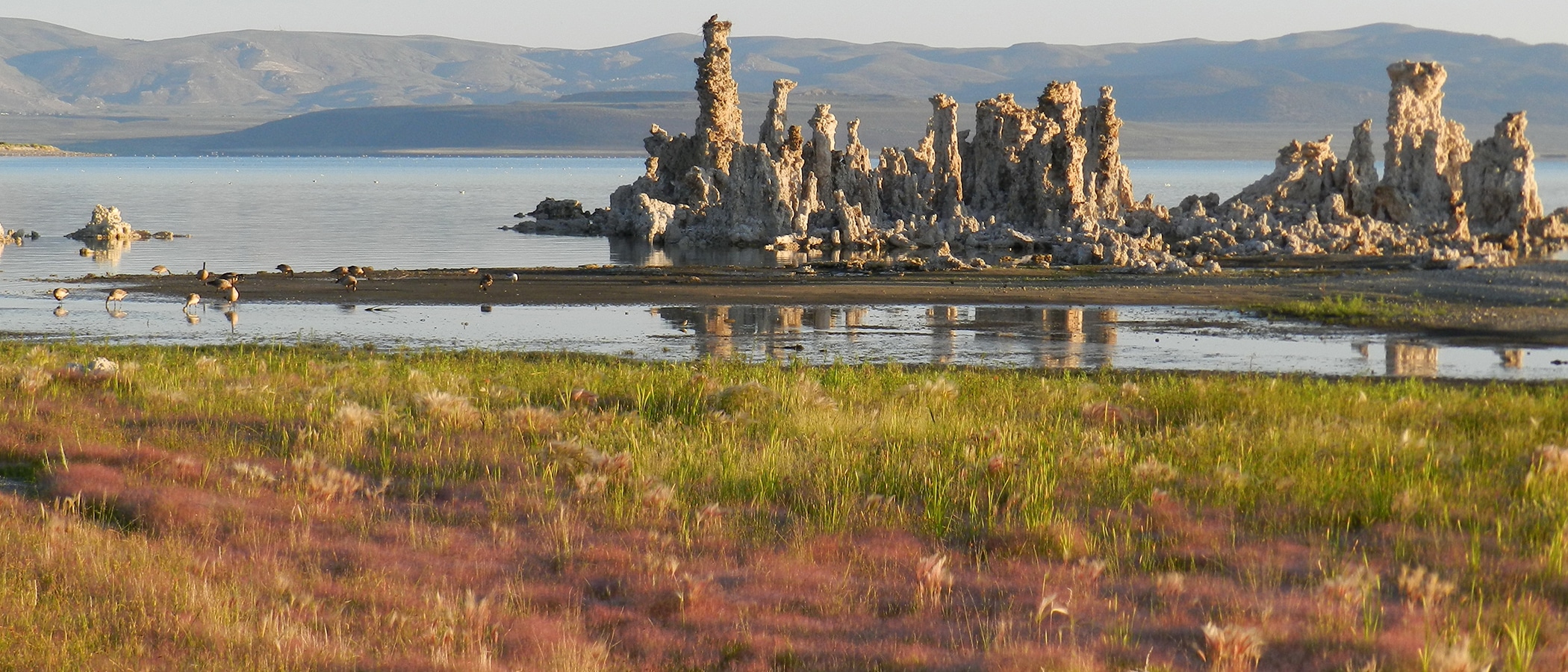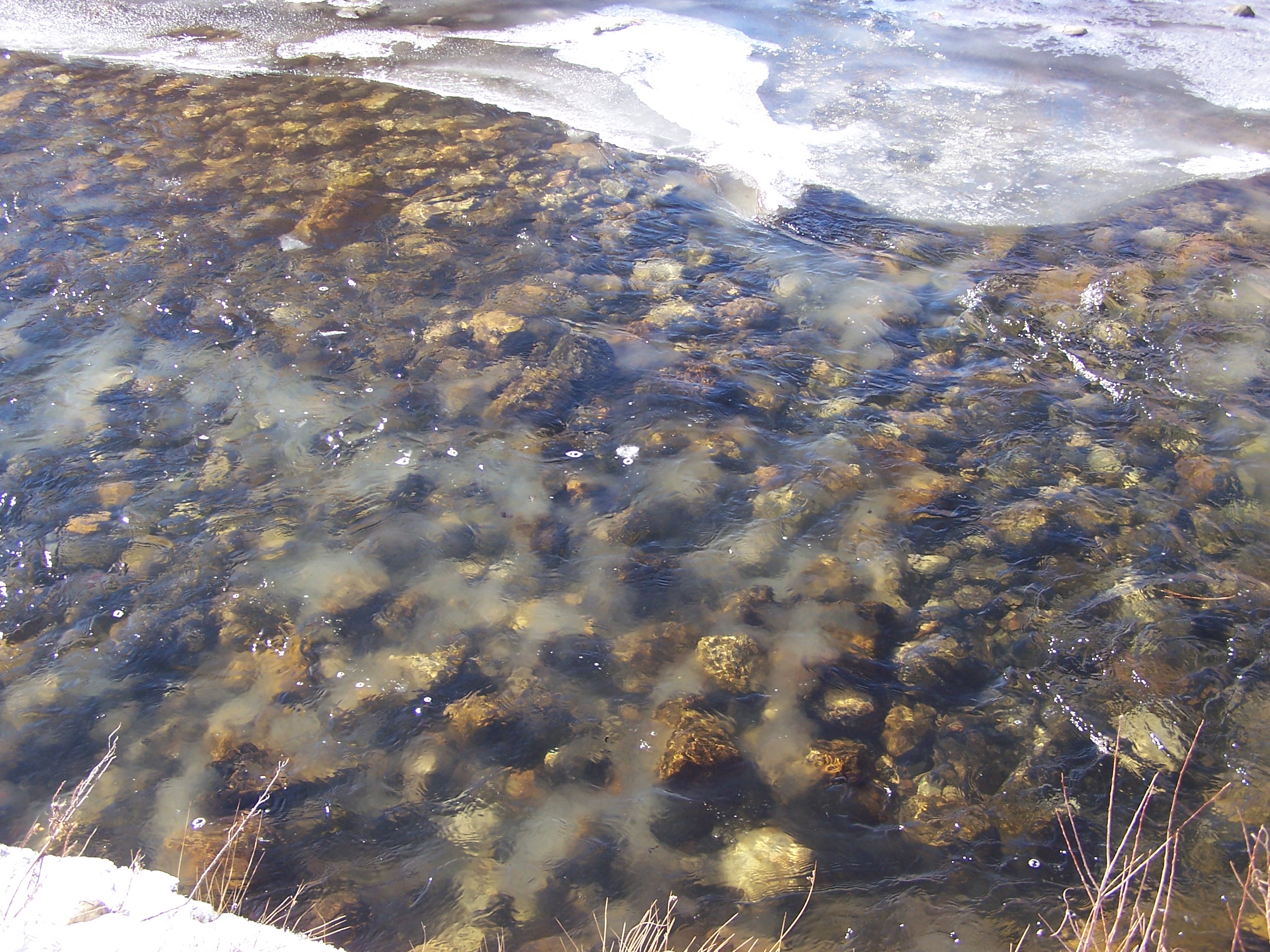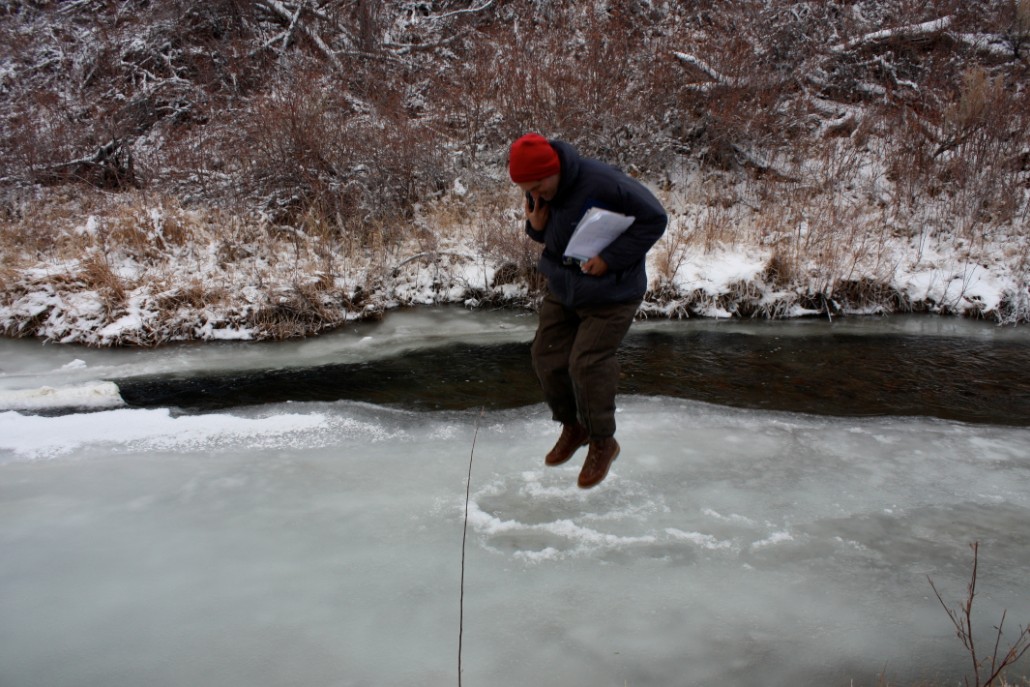
Mono Lake dropped 0.08 feet this past week and currently is at the low point for the year: 6382.07′. This was a bit unexpected, considering the cold and wet weather we’ve had this past week. But it wasn’t that wet and it was very cold. It does make sense, since inflow from Rush Creek is the lowest in decades. Also, the extreme cold weather has turned liquid into solid, resulting in a reduced inflow to Mono Lake–because solid doesn’t flow!
If the lake drops any more at all, it is off the gauge–and we wouldn’t know the level until DWP installs a new gauge. With the wet weather expected this next week, the need for a new gauge seems unlikely, especially if Rush Creek flows increase. But we will have to wait and see.
Groundwater levels along Rush Creek have been dropping drastically in the last week as well. The water table dropped less than an inch and a half the previous week, but this week it dropped 2 to 8 inches (varying with reading location)! I’ll have to look at our data, but in 13 years of monitoring piezometers (wells) at Rush Creek’s “Channel 10” I can’t remember it ever dropping this much in a week.
If this drop was due only to the low flow (we have little to no groundwater data at the current flow), then we should have seen a bigger decline last week, when the average flow was lower than it was this week. What could be the cause is ice (we have little to no groundwater data at current temperatures either).
Why would ice cause the water table to drop precipitously?

Well, I have one idea. We can take a clue from Mono Lake dropping–solid water can’t flow into the lake. It can’t recharge groundwater either. If “anchor ice” builds up along the bed of the stream, it prevents liquid water from soaking into the soil along this “wetted perimeter.” Suddenly the wetted area recharging the water table is much less than without the ice blocking infiltration, and the groundwater plummets–behaving as if the flow in the creek were just a trickle–or even as if the creek were dry!
Now, that is just what I came up with on my own that made sense while I was walking around Rush Creek today. The plummeting water table could be due to other reasons. Another possibility is that the cold temperatures caused more frozen ground to block groundwater recharge. A fine distinction in processes–either way, I’m guessing the cold temperatures are the cause.
And since we have little data from this time of year and at the current flow, I turned to Google, which has some promising search results for this particular research question! Stay tuned…


Not exactly the same situation, but this excerpt from Permafrost Hydrology in North America gets at what I’m thinking regarding infiltration being reduced by cold temperatures:
“Kane and Stein (1983a) reported that the hydraulic conductivity of frozen soil is two orders of magnitude less than that of the same soil in unfrozen condition. Burt and Williams (1976) observed that the hydraulic conductivity in some soils decreases by four orders of magnitude when the temperature drops from 0 to -0.2